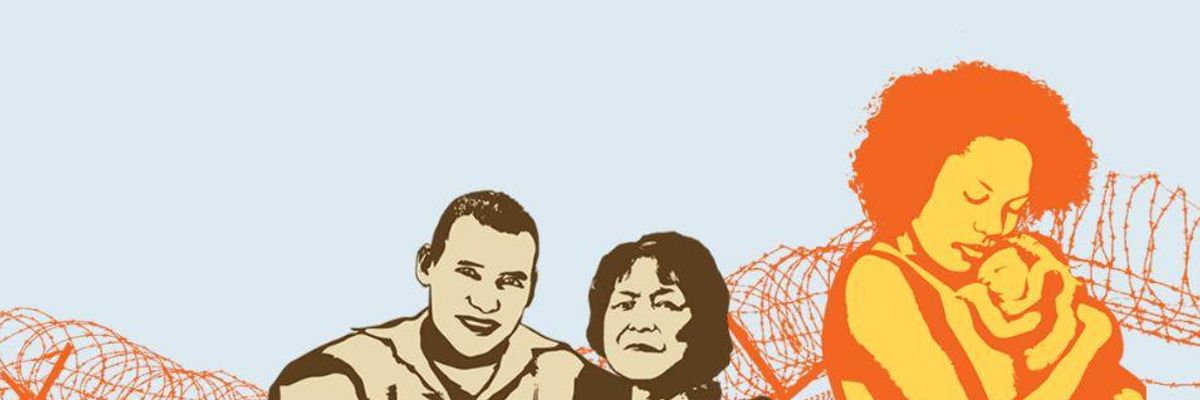The social harms of mass incarceration spread far beyond prison walls, with families enduring direct human rights abuses and women--who are disproportionately black--bearing the brunt of the poverty and trauma associated with having a loved one locked up.
These are the devastating findings of a year-long collaborative research project led by the Ella Baker Center for Human Rights, Forward Together, and Research Action Design in partnership with 20 community organizations across the United States.
Entitled Who Pays? The True Cost of Incarceration on Families, the study is based on in-depth interviews with nearly 1,500 formerly incarcerated people, their family members, and employers.
"What we found is something we already knew, that individuals with convictions are saddled with an insane amount of fees, and it is largely family members who are responsible for these costs, attorney fees, bail, fines from court, putting money on their commissary, paying healthcare co-pays, and everything associated with release," Alicia Walters of Forward Together told Common Dreams.
"When the picture gets painted of who's at the center, families are not just collateral damage. There is a direct impact, disproportionately on black women and families."
--Alicia Walters, Forward Together
"When the picture gets painted of who's at the center, families are not just collateral damage," continued Walters, who was a key researcher for the report. "There is a direct impact, disproportionately on black women and families."
In a country where 2.4 million people are currently in prison or jail, the average family accumulates $13,607 in debt due to court-related costs, the study determined. Over a third of families are forced into debt to pay for costs including phone calls and visits to see their incarcerated loved ones.
The research found that 83 percent of the family members responsible for these costs were women.
Given broad trends in incarceration, these women are disproportionately people of color. A study released earlier this year by University of Washington researchers found that black women are far more likely than their white counterparts to have a family member who is incarcerated.
Almost two-thirds of families "had difficulty meeting basic needs as a result of a loved one's conviction and incarceration," the report states, noting that 70 percent of them had children under the age of 18.
Nearly one out of five families were not able to afford housing as a direct result of the loss of income due to their relative's incarceration.
"I feel like I've been locked up along with my husband for the past 30 years," said Shamika Wilson, whose husband is currently incarcerated, in a statement accompanying the report. "I work hard to support him and to keep my family from falling within the same cycles of abuse and poverty. But his health issues have worsened since being in prison, and the burden of tens of thousands of dollars in court fees and fines keep our family down."
"I feel like I've been locked up along with my husband for the past 30 years."
--Shamika Wilson, family memberNot only does having a family member behind bars bring economic hardship, but it also makes that loved one far less likely to climb out of poverty once he or she is released.
The study finds that 67 percent of formerly incarcerated people were either unemployed or underemployed five years after their release. Three out of 5 were not able to afford the costs of returning to school, and a quarter were denied loans for school because of their convictions.
Perhaps most harrowing are the wounds family members endure. "Of the people surveyed, about one in every two formerly incarcerated persons and one in every two family members experienced negative health impacts related to their own or a loved one's incarceration," the report states. "Families, including their incarcerated loved ones, frequently reported symptoms of Post-Traumatic Stress Disorder, nightmares, hopelessness, depression, and anxiety."
Despite the bleak findings, Walters expressed hope that the report will ultimately serve as a movement-building tool.
"We have to be involved in a culture shift so that the American public understands this is a family issue," Walters emphasized. "When we think of people who talk about safety and what safety means, we should think of safety as being able to feed your children and being able to send them to quality schools. We should think of safety as after school programs and quality housing so that families can put down roots instead of being uprooted."
